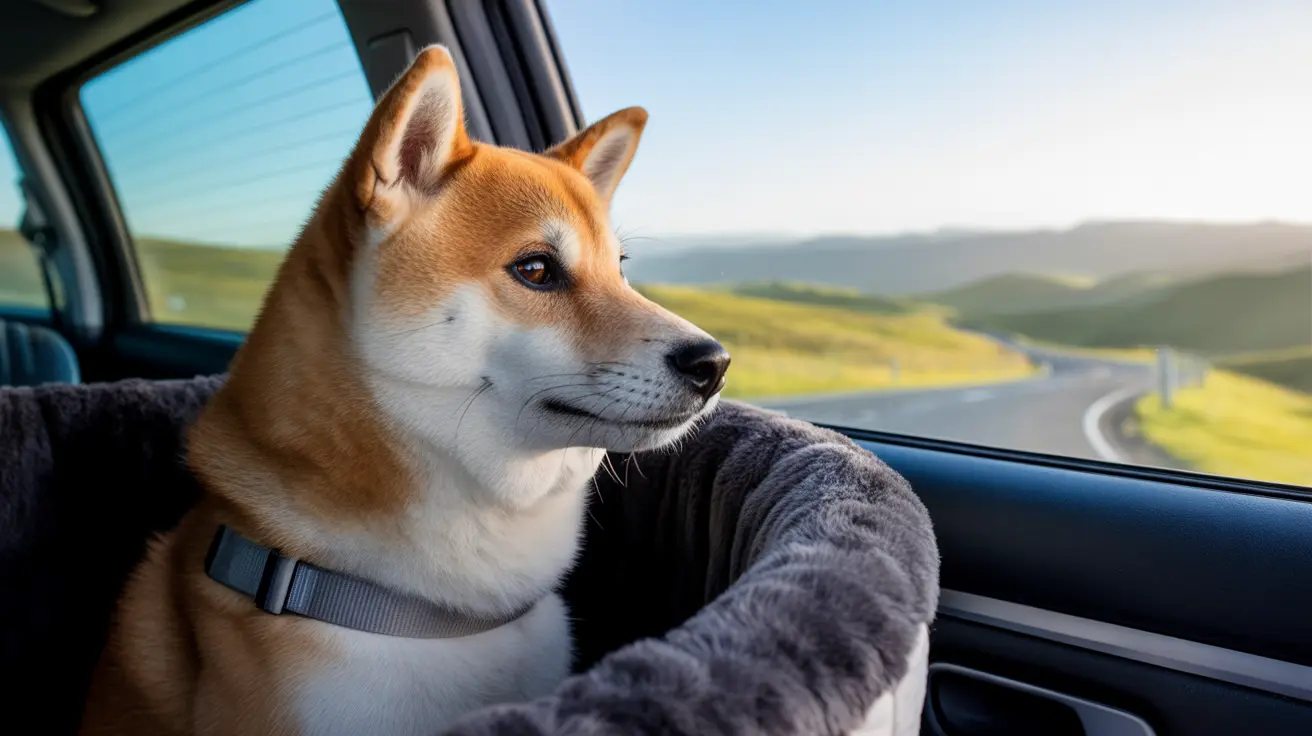Planning a journey with your furry friend? Whether it's a quick trip to the vet or a cross-country adventure, traveling with your pet in the car requires careful preparation and attention to safety. This comprehensive guide will help you ensure both you and your pet enjoy a comfortable, secure journey together.
From essential gear and safety equipment to acclimation techniques and emergency preparedness, we'll cover everything you need to know about making car travel with your pet a positive experience. Let's explore how to make your next road trip safe and enjoyable for everyone involved.
Essential Safety Equipment for Pet Car Travel
The foundation of safe pet car travel starts with proper restraint systems. A crash-tested pet carrier, safety harness, or pet seat belt is crucial for protecting both your pet and vehicle occupants. According to safety studies, an unrestrained 10-pound dog can generate 500 pounds of force in a 50-mph collision, highlighting the importance of proper security measures.
Consider these proven safety solutions:
- Crash-tested carriers for small pets and cats
- Vehicle-specific pet barriers
- Pet car seats with safety tethers
- Multi-function pet travel harnesses
- Non-slip seat covers with anchoring systems
Pre-Journey Preparation Steps
Successful car travel with pets begins well before you hit the road. Start preparing at least a week in advance by gathering essential supplies and documents:
- Updated vaccination records and health certificates
- Sufficient medication for the journey plus extra
- Familiar food and treats
- Collapsible water bowls and fresh water
- Waste bags and cleaning supplies
- Comfort items like favorite toys or blankets
- Recent photos of your pet for identification
Acclimating Your Pet to Car Travel
Many pets experience anxiety or motion sickness during car rides. A gradual acclimation process can help them feel more comfortable:
- Start with short, positive experiences in the parked car
- Progress to brief drives around the block
- Gradually increase trip duration
- Use treats and praise to create positive associations
- Practice with safety equipment at home first
Managing Your Pet During the Journey
Successful car travel requires ongoing attention to your pet's needs throughout the trip. Make regular stops every 2-3 hours for exercise and bathroom breaks. Never leave your pet alone in the car - interior temperatures can rise or fall to dangerous levels within minutes, even on mild days.
Keep these travel management tips in mind:
- Monitor your pet's comfort and stress levels
- Maintain consistent feeding schedules
- Offer water frequently during stops
- Exercise your pet during breaks
- Keep the vehicle well-ventilated
- Use window shades to prevent overheating
Emergency Preparedness and Safety
Being prepared for emergencies is crucial when traveling with pets. Create a pet-specific first aid kit and keep it easily accessible. Research veterinary clinics along your route and save their contact information. Consider investing in pet insurance that covers travel-related incidents.
Frequently Asked Questions
How can I help my pet feel more comfortable and secure during car rides?
Start with short trips and gradually increase duration while using positive reinforcement. Ensure they have familiar items like toys or blankets, and maintain proper ventilation and temperature control.
What are the safest ways to restrain my pet in the car, especially during long trips?
Use crash-tested carriers, safety harnesses, or pet seat belts appropriate for your pet's size. Never let pets ride unrestrained or in the front seat where airbags could cause injury.
How can I acclimate my pet to car travel to prevent anxiety and discomfort?
Begin with short sessions in a parked car, using treats and praise. Gradually progress to short drives, then longer trips, always maintaining a positive environment.
What essential items should I pack for a safe and enjoyable pet-friendly road trip?
Pack medical records, medications, food, water, bowls, waste bags, comfort items, and safety equipment. Include a first aid kit and emergency contact information.
Why is it dangerous to leave my pet unattended in a car, even for a short time?
Car temperatures can rise or fall dramatically within minutes, even with windows cracked. This can lead to heat stroke or hypothermia, potentially causing serious injury or death.
With proper preparation and attention to safety, car travel with your pet can be a rewarding experience that strengthens your bond and creates lasting memories. Remember to prioritize your pet's comfort and security, and always plan ahead for potential challenges along the way.






